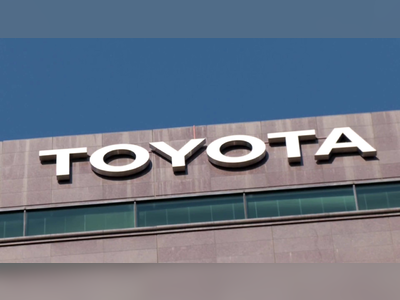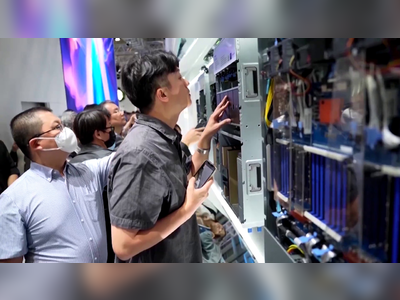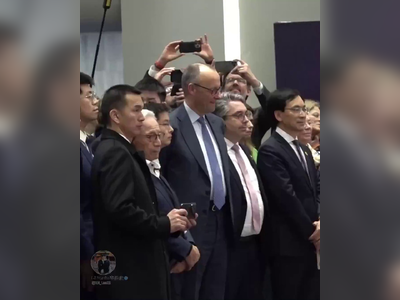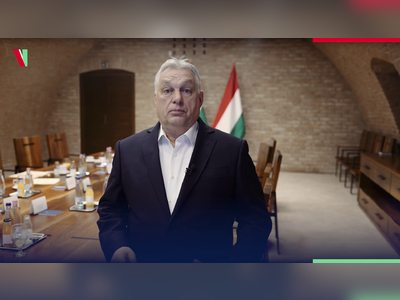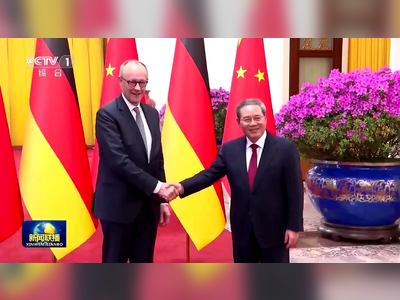
EU Trade Chief Seeks Dialogue to Mitigate Trump Tariffs
Maroš Šefčovič highlights readiness to negotiate on key trade issues before upcoming talks in Washington.
EU Trade Chief Maroš Šefčovič expressed the European Union's willingness to engage in discussions over various trade issues to avert the potential imposition of tariffs threatened by U.S. President Donald Trump.
Speaking at the Munich Security Conference, Šefčovič stated, "If there are other issues on the table, let's sit together, let's resolve it," emphasizing a desire for a collaborative approach.
This statement comes ahead of Šefčovič's scheduled visit to Washington, where he will meet with senior Trump administration officials, including Commerce Secretary nominee Howard Lutnick, trade representative nominee Jamieson Greer, and National Economic Council chief Kevin Hassett.
Šefčovič referred to the EU's significant trade surplus with the United States, which amounted to €50 billion in 2022, a factor that has drawn criticism from Trump.
He indicated that Brussels might consider reducing its 10% tariff rate on cars, which he noted is significantly higher than the U.S. rate of 2.5%.
In line with the EU's strategy to mitigate trade tensions, Šefčovič mentioned the possibility of increasing imports of U.S. goods, such as liquefied natural gas (LNG) and soybeans.
"If the €50 billion is a problem, if the cars are the problem, if the soybeans are the problem, if the LNG is the problem – anything you want to discuss, we are ready to discuss it," he commented.
His remarks come following Trump's announcement of a 25% tariff on all U.S. imports of steel and aluminum, as well as a plan for "reciprocal tariffs" that would match levies imposed by other countries.
The White House indicated that the steel and aluminum tariffs are set to take effect by March 12, with the reciprocal tariffs potentially starting on April 2.
Concerns have been raised by analysts and European industry groups regarding the potential economic impact of these tariffs, particularly the risk of redirected Chinese exports to Europe in the event of U.S. import restrictions.
In a contrasting stance, Mélanie Joly, Canada’s Minister of Foreign Affairs, emphasized the importance of showing strength in negotiations with the U.S., citing Canada’s previous success in averting tariffs through the threat of retaliatory duties on $155 billion worth of U.S. goods.
Joly urged the EU and Canada to collaborate in addressing protectionist measures from the U.S., noting that Canada might serve as a precursor to similar actions affecting the EU.
Šefčovič's upcoming discussions in Washington mark a critical point in U.S.-EU trade relations as both sides navigate the complexities of tariffs and trade policies.
Speaking at the Munich Security Conference, Šefčovič stated, "If there are other issues on the table, let's sit together, let's resolve it," emphasizing a desire for a collaborative approach.
This statement comes ahead of Šefčovič's scheduled visit to Washington, where he will meet with senior Trump administration officials, including Commerce Secretary nominee Howard Lutnick, trade representative nominee Jamieson Greer, and National Economic Council chief Kevin Hassett.
Šefčovič referred to the EU's significant trade surplus with the United States, which amounted to €50 billion in 2022, a factor that has drawn criticism from Trump.
He indicated that Brussels might consider reducing its 10% tariff rate on cars, which he noted is significantly higher than the U.S. rate of 2.5%.
In line with the EU's strategy to mitigate trade tensions, Šefčovič mentioned the possibility of increasing imports of U.S. goods, such as liquefied natural gas (LNG) and soybeans.
"If the €50 billion is a problem, if the cars are the problem, if the soybeans are the problem, if the LNG is the problem – anything you want to discuss, we are ready to discuss it," he commented.
His remarks come following Trump's announcement of a 25% tariff on all U.S. imports of steel and aluminum, as well as a plan for "reciprocal tariffs" that would match levies imposed by other countries.
The White House indicated that the steel and aluminum tariffs are set to take effect by March 12, with the reciprocal tariffs potentially starting on April 2.
Concerns have been raised by analysts and European industry groups regarding the potential economic impact of these tariffs, particularly the risk of redirected Chinese exports to Europe in the event of U.S. import restrictions.
In a contrasting stance, Mélanie Joly, Canada’s Minister of Foreign Affairs, emphasized the importance of showing strength in negotiations with the U.S., citing Canada’s previous success in averting tariffs through the threat of retaliatory duties on $155 billion worth of U.S. goods.
Joly urged the EU and Canada to collaborate in addressing protectionist measures from the U.S., noting that Canada might serve as a precursor to similar actions affecting the EU.
Šefčovič's upcoming discussions in Washington mark a critical point in U.S.-EU trade relations as both sides navigate the complexities of tariffs and trade policies.
AI Disclaimer: An advanced artificial intelligence (AI) system generated the content of this page on its own. This innovative technology conducts extensive research from a variety of reliable sources, performs rigorous fact-checking and verification, cleans up and balances biased or manipulated content, and presents a minimal factual summary that is just enough yet essential for you to function as an informed and educated citizen. Please keep in mind, however, that this system is an evolving technology, and as a result, the article may contain accidental inaccuracies or errors. We urge you to help us improve our site by reporting any inaccuracies you find using the "Contact Us" link at the bottom of this page. Your helpful feedback helps us improve our system and deliver more precise content. When you find an article of interest here, please look for the full and extensive coverage of this topic in traditional news sources, as they are written by professional journalists that we try to support, not replace. We appreciate your understanding and assistance.

